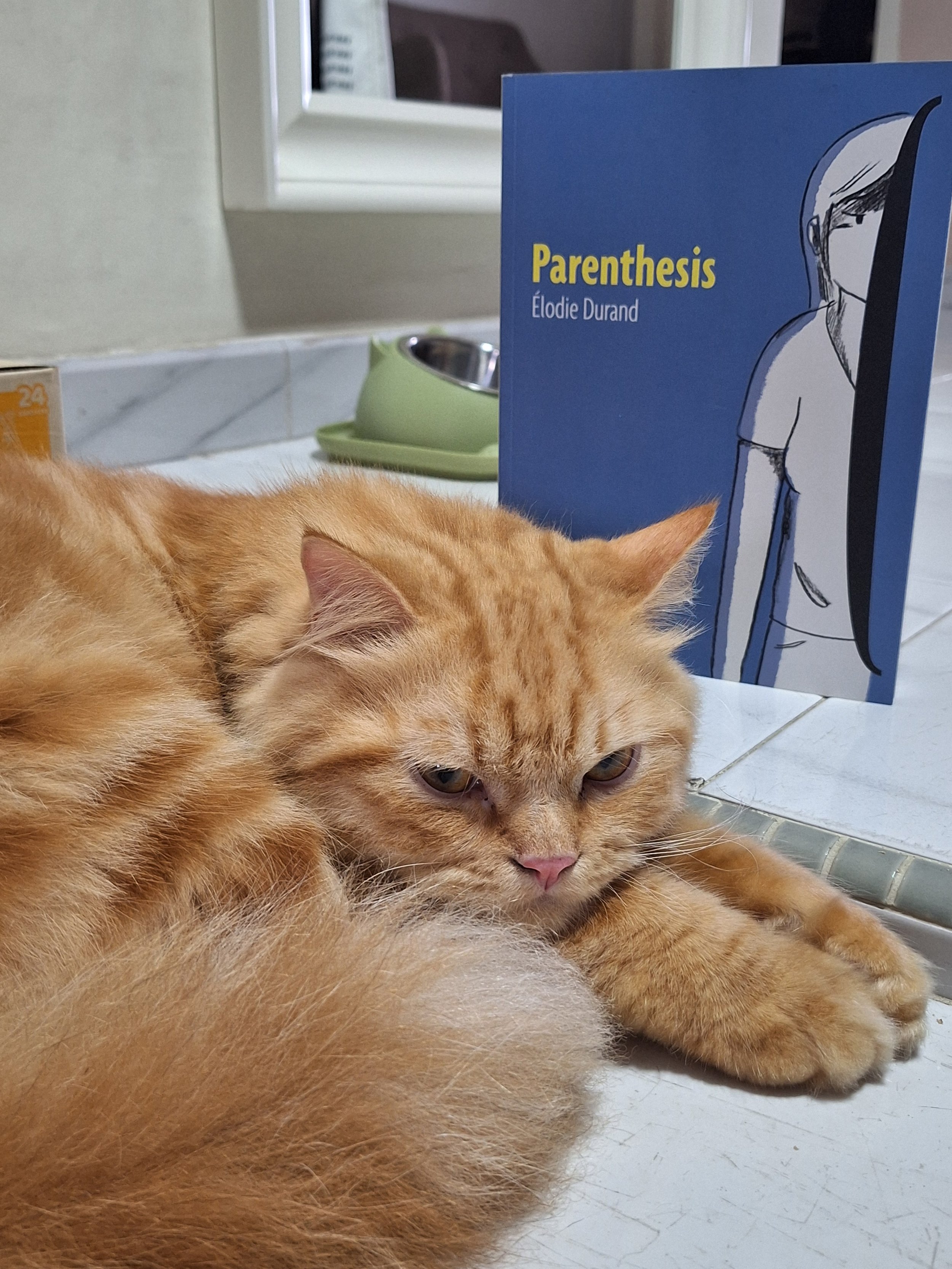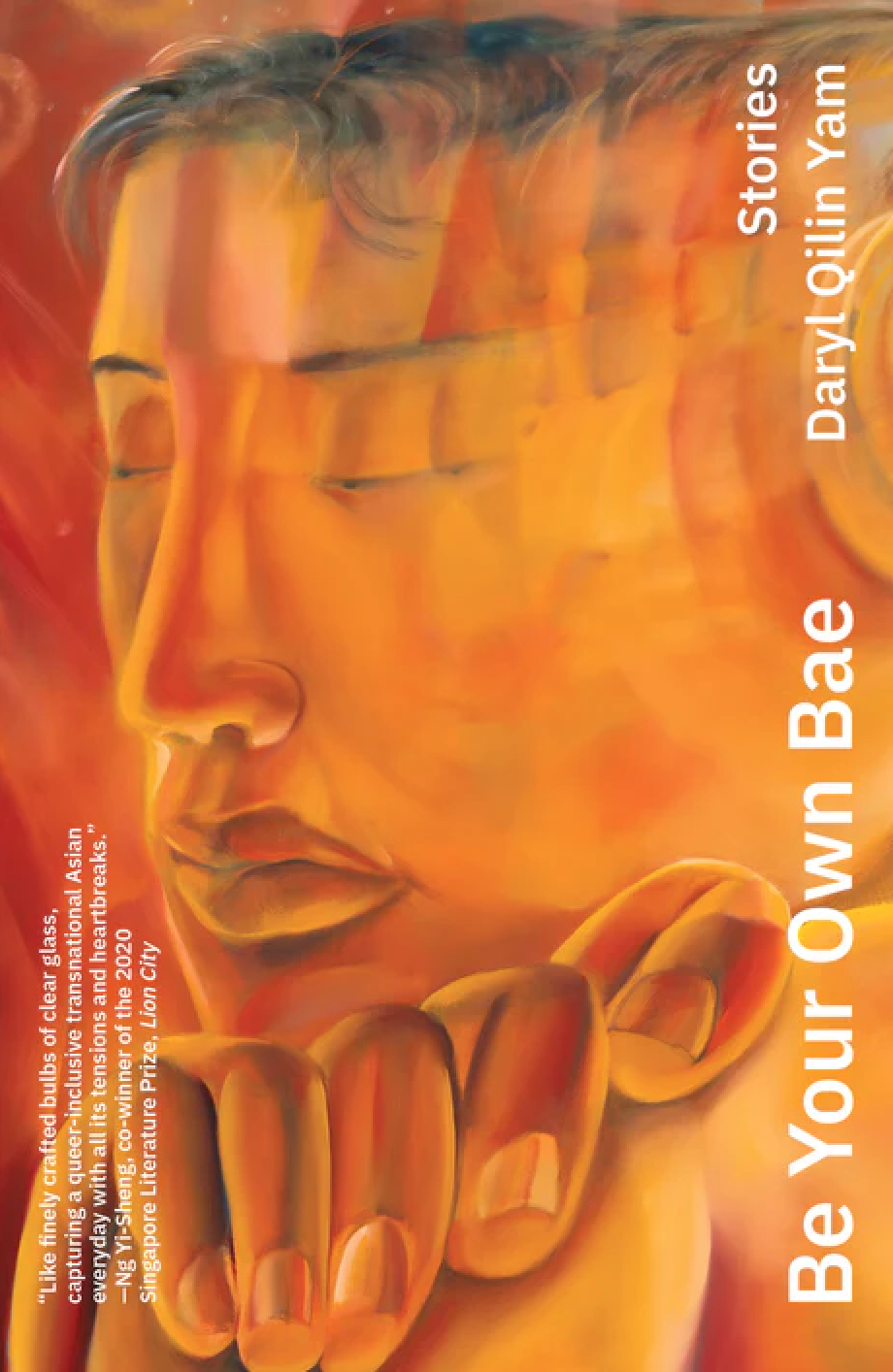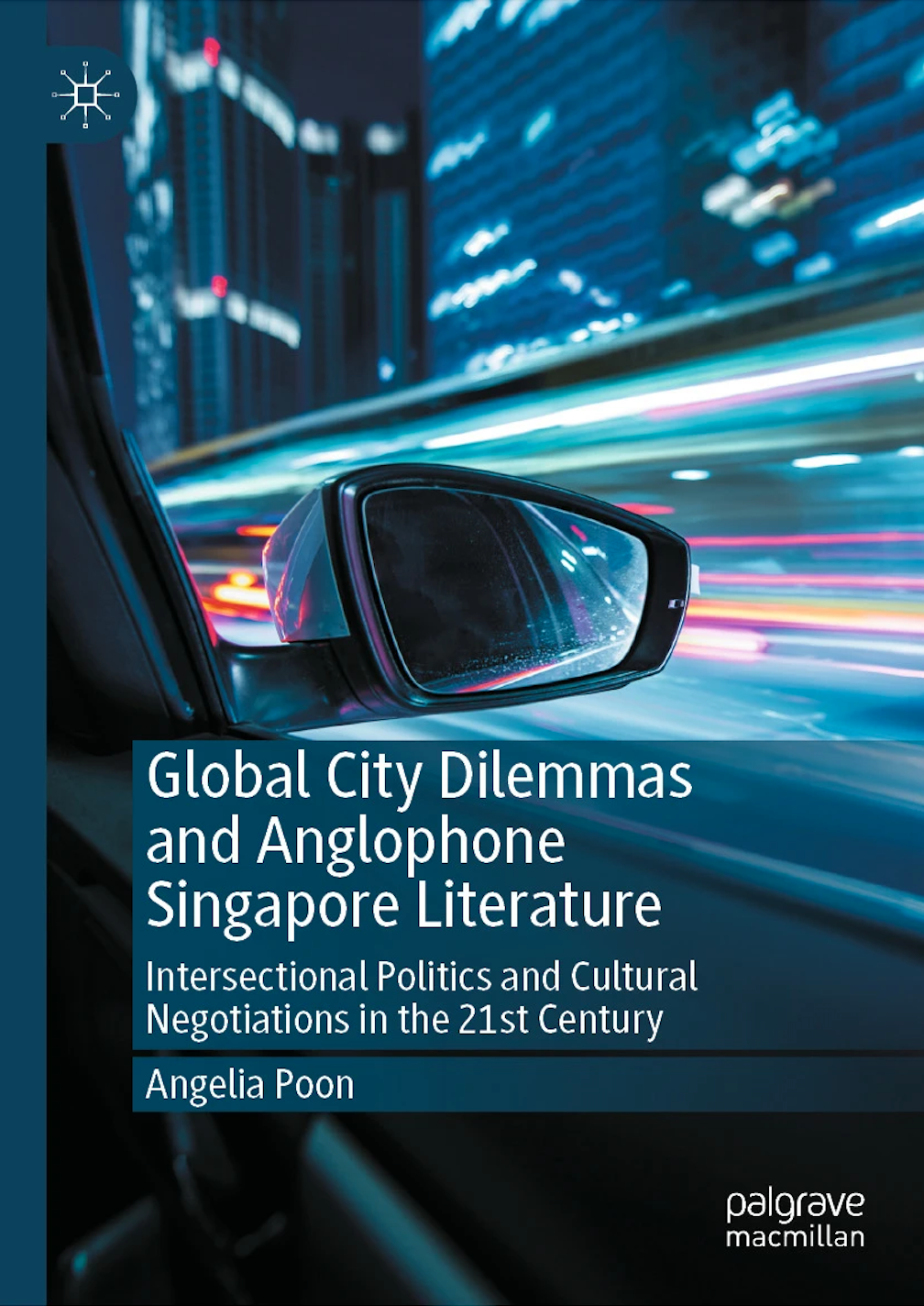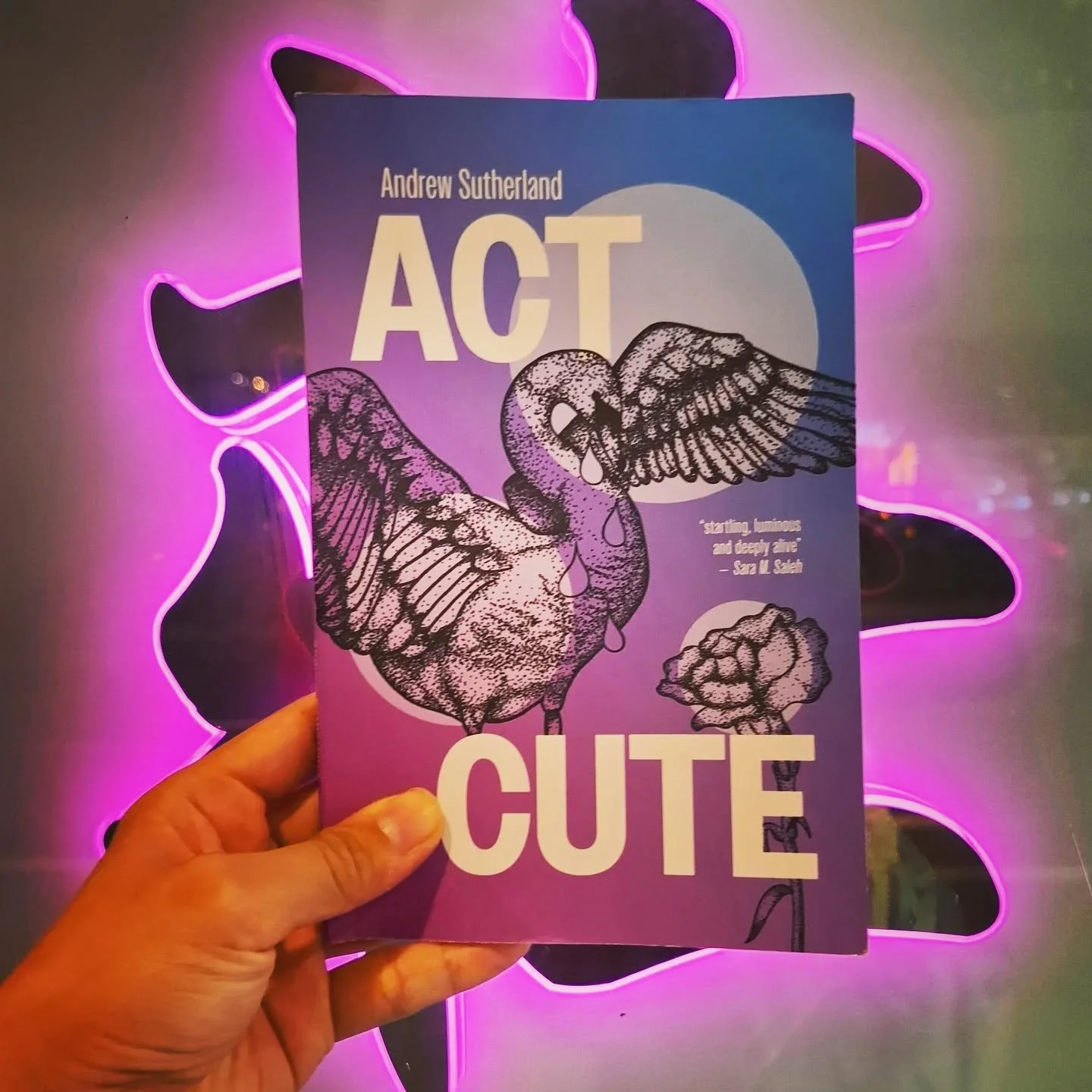Beautiful, Sometimes
By Annina Zheng-Hardy
Review of Hotel Oblivion by Cynthia Cruz (USA: Four Way Books, 2022)
Cynthia Cruz's iterant and itinerant collection Hotel Oblivion alliterates on a number of themes: film and documentation; beauty; song and silence; the body. These are common enough themes, but in Cruz's collection, each seems to orbit around itself, and the various themes orbit around each other, such that absences and emptiness become the collection’s loci. This orbiting effect held me as a reader in thrall.
The voice of these poems scratches against its own walls, yet it remains mysterious and obfuscated. For example, an early poem ends with an undisclosed “she” telling the speaker, “you confuse yourself … so you can tell yourself you don’t know. But you do … you do,” a line that recurs word for word in one of the collection's last poems, this time voiced by a named character, Sabine.
On the other hand, the speaker's voice when talking about herself is distinct, and at times deeply confessional:
When I was in the hospital
the other girls and I
changed—we became
deviant, aberrant …
… And I never changed back.
The speaker seems aware of this dynamic, which she describes in the poem “The Ring,” where the speaker is “learning to speak, again. / Astral, spectral, half-in-dream. // I make my way through the jig- / saw of a cruel and perfect grammar.” As part of this learning to speak, the speaker obsesses over certain phrases and images. As though to help locate herself, she cites artists like Unica Zürn, writers like Pierre Guyotat, Jean Genet (whom the speaker calls "her other"), characters in films, a person named Sabine, and a person named G. Twice, the collection mentions running through a forest. The speaker tells stories of multiple people sent to prison: the collection evokes Jean Genet in prison six times alone.
Language is another obsession, almost always brought up in conjunction with the body, as in, “On the U-Bahn at night I carry my own damage—/ inside the body—inside the mind—my own self- / made language.” Polaroids are mentioned 15 times, photographs 47 times. There is even an instance of “Photographs of photographs and Polaroids.” Phrases and images that appear in one poem often echo into the next—”The body, wanting more, / always trying to speak, / begins its singing” becomes the body exposed, “Tremendous, / and without words, // the song / I am never not singing.” And yet, rather than dulling the poems, these repetitions create a reverb the way a villanelle does, which encloses the reader into a propulsive and bewildering reading experience. Because not much of its meaning is explicit, reading this collection is a project in reading into it, gleaning what we can and having the cumulative effort be what we choose to believe underlies the repetition and imagery.
Given that one of its themes is film and documentation, there's a kind of voyeurism to this collection. One could imagine the speaker in a series of nondescript hotel rooms in constructivist Soviet buildings. One could imagine her transfixed, her face lighting up and darkening to the illumination of a Lumière Cinématographe projecting black-and-white motion pictures. This text is her way of transcribing those pictures and making a landscape out of them, a balm against loneliness, a raging toward being understood. And yet, the futility of it remains, as in the poem “Saturday”:
why glean, why assemble
… And how
is the gluing of words together
not unlike taking something beautiful apart.
… I bought a pale blue dress …
and walked alone, home, in it,
through the parades of my emptiness.
Music and silence, particularly singing—sound and action that takes place around the speaker's body—is another of Cruz's fixations. In another poem, “The Moment of Exposure Is the Moment When It All Begins,” the speaker is watching a German film. She observes the actress's body “filling with music, with the energy of the moment.” All the characters in the film, observed in staticky black and white images on a television set, have bodies “filled with energy, / a kind of uncurbed kinesis or frenetic / music ….” In one of fourteen poems titled “Hotel Letter,” the speaker describes music as coming from the same source as desire: “Where is the essence from which / music and desire originate. / And how do I return to that.” Silence, similarly, is embodied and indicative of some inner frequency: “we sat in strict silence / for hours so that … I felt I genuinely knew him. / What is the porcelain light / that exists inside silence” and “what I have been for so many years / afraid of: the space between, the place / of magnificent, though, mostly / terrifying, silence.”
Similarly, concern for beauty runs through the collection: “I want to make this poem prettier. / If it's more beautiful, if I am / more beautiful, then / you will love me.” The speaker describes herself several times as “beautiful, sometimes.” In the poem “Fragment,” for example, she says,
What I am saying to you
in this poem can be used
against me. Not unlike the body,
how it glitters in its invisible terrors.
Or how, like the mind, the body
ingests memory, just like how
I devour everything.
Empty vessel, I take all of it in,
so I can give you this thing.
Beautiful, sometimes, but almost
always broken, and imperfect …
Because the speaker reveals little of her past, these concerns with beauty and music and language, which functions as both well-worn ruminations and hope for rebirth, became the pillars by which I tried to signpost this collection for myself on otherwise slippery ground.
Perhaps the poem with the most extensive biographical sketch of the speaker is “Philosophy.” It starts out typically enough:
In the German film in which
I am disguised as the blonde actress
who portrays the activist turned anarchist,
I am wearing a blonde wig,
disguised as a German film actress.
The poem then branches out to detail the speaker's unstable youth, in which her friends became drug addicts who then had to find ways of making money to purchase drugs and who mostly ended up dead. The end of the poem turns back to film as an explanation and parallel:
When in the film, the actress
is finally hunted down and sent to prison,
she lives inside her cell
reading and listening to news
of the world on her transistor radio.
Living a kind of death
I know already
all too well.
This poem, for me, reframed the text. The way this collection circles around a collection of words like beautiful, music, alone, empty, and the way it projects onto other people, brings to mind dissociation and trauma. The repetitions, the echoes, the fixations are the work of a mind obsessively trying to make sense of itself and its memories, to audit its existing language and to create new language. Suddenly I saw that, each time Cruz mentions childhood, whether the speaker is a child or is just observing children, leaves a disquieting impression. These poems, while propulsive, were exhausting to read, in part because I felt the collection could only make sense in aggregate. I was tempted at times to just let the words wash over me meaninglessly, to stop clocking their obsessions.
And perhaps that's the point. Those experiencing intrusive thoughts and disruptions can make for exhausting company. I'm sure it's true in reverse as well. In today’s discourse, we try so hard not to reduce people to their mental pathologies that we risk exceptionalizing them: when mental illness makes someone say and do things we cannot make sense of, we are quick to say, “that's just who that person is.” In assaying so, we forget that our narratives are a product of our minds, that they exist in a context of porous associations. More and more, we hear people say, “that person needs to work on themselves,” or “let's unpack that.” The way we speak about and treat the mind, healthy or not, exists in its own repetitive spiral. We distance ourselves from rather than reaching for the harder and often less palatable truth—that people are confusing, that unpacking ourselves may reveal things discordant and contradictory. That the body often wants to run in every direction at once. That, as Cruz writes, “to live inside / one’s mind, is its own locked hotel room, / its own phantasm and cell. Its own strange poem.”
This collection, this speaker, vies for our attention, but when we seek to make eye contact, she casts her eyes down, shaking her head, letting through only what she allows us to see. It's a manipulation—a handling, a shaping, with skill, with control. And that is okay, because when we influence something, we reclaim and transform it. When we manipulate ourselves, we can create ourselves anew, and sometimes for the better. When the speaker steps “into the music / with no witness / it still happens.” She asserts she is here, she is present, even when not seen or heard, but simply “because I say / that I am.” This might also be seen as vulnerability: she is letting through only what she herself has processed. As the speaker confesses in a later poem, “I am alone most of the time / but sometimes beautiful, / unafraid and with music.”
Annina Zheng-Hardy (she/her) is a poet living in London. Her poems and short fiction are forthcoming or have appeared in Joyland, The Offing, bath magg, Honey Literary, and elsewhere.
If you’ve enjoyed reading this article, please consider making a donation. Your donation goes towards paying our contributors and a modest stipend to our editors. Singapore Unbound is powered by volunteers, and we depend on individual supporters. To maintain our independence, we do not seek or accept direct funding from any government.










In Taiwan Travelogue, ‘twinned souls… are at once lost, but also found, in translation.’ A review by Eunice Lim.